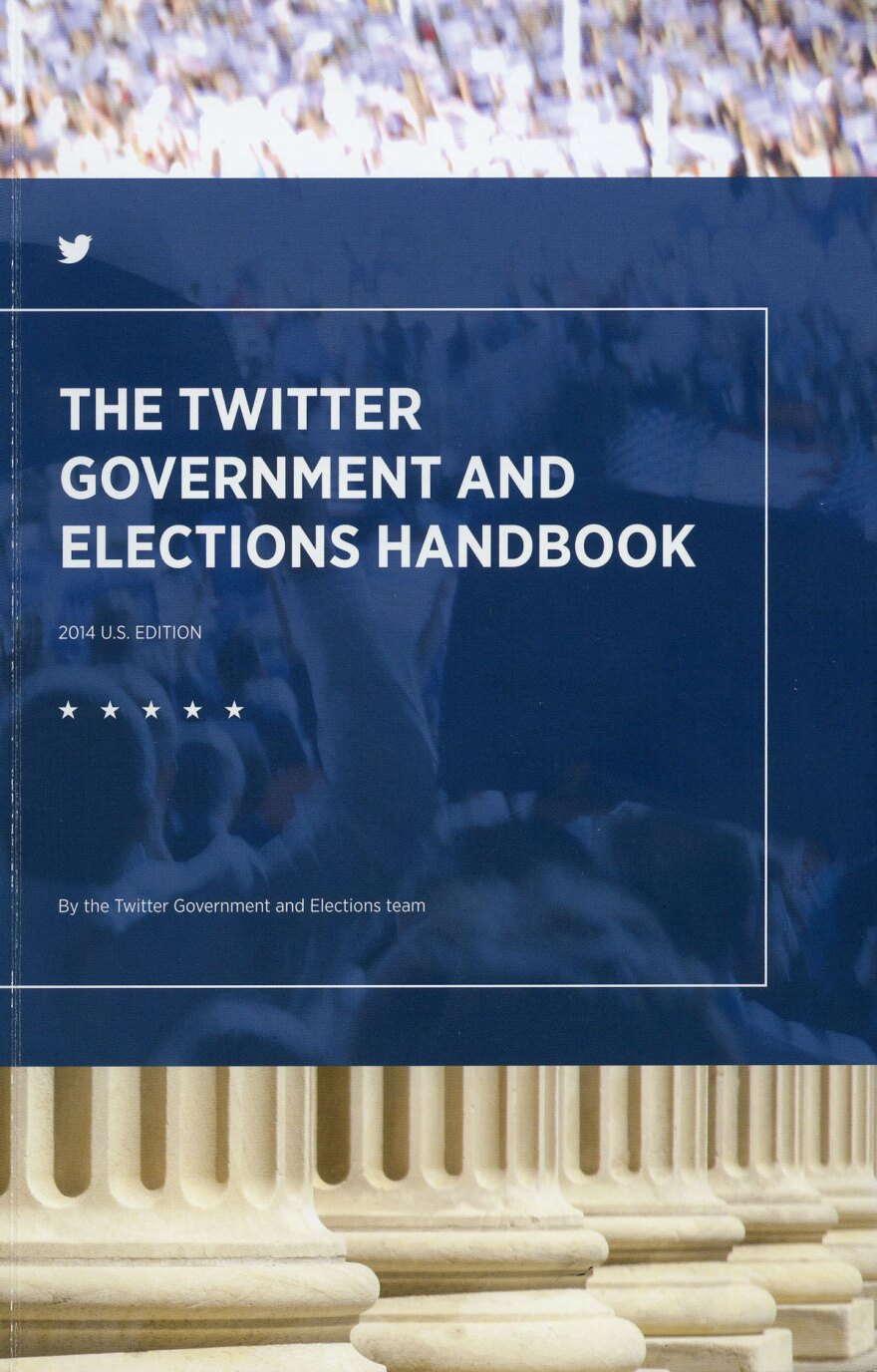Twitter seems simple — just type in 140 characters and hit enter, right? But Twitter can be tough. Building an audience. Keeping that audience. Finding a voice. Cutting through all the chatter. It's a lot, especially if you're a busy elected official.
Well, elected officials, fear not! Twitter itself is here to help. NPR recently discovered that the social media giant has a very special handbook just for people running for elected office. And it's 136 pages long.
The manual has been "wildly popular," said Bridget Coyne, a manager on Twitter's Government and Elections Partnership Team who helped put the manual together (see below for more of our interview with her). "We don't want to make assumptions. We want to make sure that people feel empowered with the full story of what Twitter is."
Here's a look inside:
Page 9:
"The best way to earn a voter's support is no different today than it was a century ago: a simple handshake and a look in the eye. But it is hard to scale such retail politicking to the entire voting public ... Twitter helps fill the void, enabling a virtual "handshake" and conversation at a scale not possible even a generation ago. Through these small, easy interactions, elected officials and their constituents regain some of the meaningful contact lost over the years, and can do it from anywhere."
Page 25:

This page contains questions like these:
-- What Is Twitter?
-- Where Do Tweets Appear? Who Reads Them?
-- Why 140 Characters?
And killer quotes like this one:
"Brevity keeps Twitter fast-paced and relevant by encouraging people to Tweet in the moment and to focus on the essential ideas they want to communicate."
Page 27:
This amazing chart:
Page 30:
How to delete a tweet: "On the web, select the trash can icon at the bottom of the Tweet. You will get a prompt to 'Delete.' "
Page 39:
This gem: "You don't have to ask permission to follow."
Page 58:
This selfie:

Page 69:
There's a section called "Be Creative." It contains the following:
"Politics isn't the only thing politicians talk about. Twitter gives politicians a platform to connect with the public, whether it be over sports of the latest buzzworthy news item. It is an opportunity for politicians to show they are more than just a suit — or pantsuit — and to talk about something other than policy and votes. In "stepping out from behind the podium" and showing natural personality, these leaders humanize themselves and the political process — and gain followers to boot."
Also, this section contains instructions like "Tweet About Your Favorite TV Shows" (House of Cards is one example) and "Talk To Athletes."
Page 87:
"Expect The Unexpected."
We reached out to Twitter to ask some vital questions about the manual, namely: Why in the world is it so long? Here's what Bridget Coyne of Twitter had to say:
For a website built on brevity, this manual is what, like 136 pages long?
Almost 140! Well, we know that Twitter works well in its simplest form. It can be great in that brevity. But also, there's so much rich media that goes to it. So you can attach a photo, you can attach a video, or a Vine. And ... the best strategies around it do take some thought. And we wanted to put it out there, so people can think about what content they're putting — think before you tweet!
We know that there are some parts of Twitter that can be a little complicated, and we tried to put it in simpler words for people, so they felt smart, they felt like they knew what they were doing.
Who is the intended reader of the manual? The congressperson themselves? The staffer doing social media? The campaign manager?
All of the above. The best Twitter users in Congress and in government are offices that have everyone participating. People reading content, finding great content to retweet or reply to. Understanding the platform. The congressperson, the chief of staff, even the intern should all understand how Twitter works. ... And knowing how it works you can create the best content strategies around that.
So there are some pages of the manual that really get in the weeds, and there are other pages that are a little basic. My favorite page is the one marked, "What is Twitter?" Some of these, you're like, "Oh my God, who DOESN'T know this?!"
Well we don't want to make assumptions. We want to make sure that people feel empowered with the full story of what Twitter is. And knowing it from its basic end of, "If I've never seen this platform, what does it entail?"
Defining it in real terms. Why 140 characters? It's built around SMS. It's built around text messaging. OK, that makes sense, and then moving to the next level. Why is there an @ sign?
What kind of feedback have you received?
It's been wildly popular. We keep getting people contacting us that are new. And say, how do I do this? And we can say turn to this page. Lots of people want to see updates with new things like Periscope. ... So, we hope that we can iterate on it, and make it global as well.
Will there be a Version 2 of this manual at some point?
We hope so!
Have any folks seen this manual and said, "Why the hell is it almost 140 pages long?"
Not to me personally!
To see the full manual head here.
Copyright 2021 NPR. To see more, visit https://www.npr.org.




